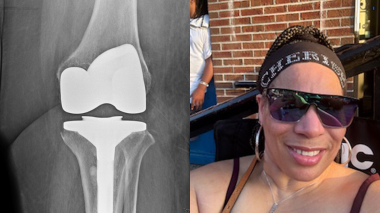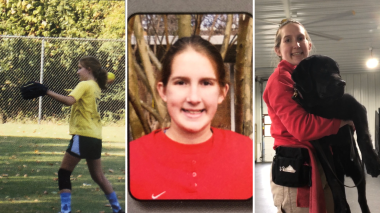Typically, race mistakes happen because runners decide to try something new. Rarely is this a good idea. A wise mantra to follow is “nothing new on race day.”
By Christina Vorobej, MD Sports Medicine and Injury Care (Huntersville) When you want to experiment, save it for training days, not race days - mostly because you haven’t been practicing these new strategies or habits in your daily training. That philosophy will serve you well, and allow you to avoid these five common mistakes:1. Changing what you wear
It’s critical to wear comfortable shoes and clothes. This will allow you to avoid painful blisters in your feet, as well as chafing in your thighs, under arms, and sports bra areas. If you’ve been running pain-free while you practice, there’s no reason to switch that up come race day. Stick with something familiar – and not some snazzy new get-up.2. Forgoing a pre-race meal
The pre-race meal is really a two-part meal: you should eat the night before, as well as the morning of. For less than a 10K, stick with standard servings of carbs and calories the night before; if you’re running something longer, you’ll need to consume more. In the morning, eat a mix of protein and carbs at least 60 minutes before your race to allow for proper digestion. But don’t skip that breakfast. Ever.3. Forgetting to warm up
Sure, it’s nice to sleep in. But it means you’re probably not going to give yourself enough time to warm up. For shorter races, a 10-minute jog will get blood flowing to your muscles – especially on those colder mornings. That warm-up time also allows you to slowly raise your heart rate, which creates less stress on your heart. In a longer race just employ a slower pace at the start, and let that serve as your warm-up.4. Jumping out too fast
No matter how amazing you feel on race day, don’t run ahead of your pace. You’ll burn through stored energy far too fast. In fact, it’s better to run slower – intentionally – at the start, then ramp up your speed. If you do that, the second half of your race should be faster than your first half, which is always a solid race goal.5. Neglecting to replenish during and after
You never want to bonk. To avoid it you must refuel, especially in races longer than 60 minutes. Consume 30 to 60 grams of carbs and 12 to 24 ounces of fluid for every hour you run. Fluids must be a mix of water and sports drink to restore electrolytes. After the race you need to consume carbs within 30 minutes, and protein within two hours—and make sure to guzzle some water with that post-race celebratory beer. As always, practice makes perfect. It’s important to reiterate that training is the time to explore new methods, ranging from nutrition to hydration to warming up. Trying new things on race day seldom works. At best, you’ll have a disappointing time. At worst, you’ll increase your likelihood of injury.[button link="http://www.atriumhealth.org/running?hcmacid=a0bi000000MIP5W" color="custom" size="large" target="_blank" rel="noopener noreferrer" title="" gradient_colors="#008c93,#008c93" gradient_hover_colors="#008c93,#008c93" border_width="1px" border_color="#ffffff" text_color="#ffffff" shadow="no" animation_type="0" animation_direction="down" animation_speed="0.1"]DOWNLOAD YOUR FREE RUNNING GUIDE[/button]



